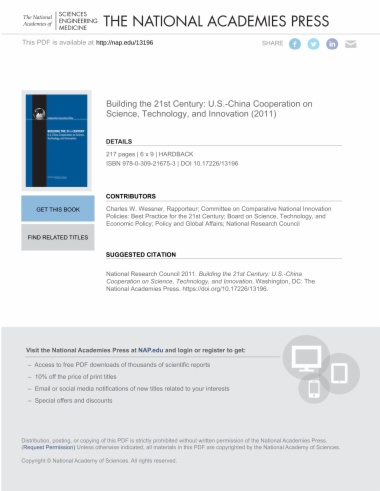

The global economy is characterized by increasing locational competition to attract the resources necessary to develop leading-edge technologies as drivers of regional and national growth. One means of facilitating such growth and improving national competitiveness is to improve the operation of the national innovation system. This involves national technology development and innovation programs designed to support research on new technologies, enhance the commercial return on national research, and facilitate the production of globally competitive products.
Understanding the policies that other nations are pursuing to become more innovative and to what effect is essential to understanding how the nature and terms of economic competition are shifting. Building the 21st Century U.S.-China Cooperation on Science, Technology, and Innovation studies selected foreign innovation programs and comparing them with major U.S. programs. This analysis of Comparative Innovation Policy includes a review of the goals, concept, structure, operation, funding levels, and evaluation of foreign programs designed to advance the innovation capacity of national economies and enhance their international competitiveness. This analysis focuses on key areas of future growth, such as renewable energy, among others, to generate case-specific recommendations where appropriate.